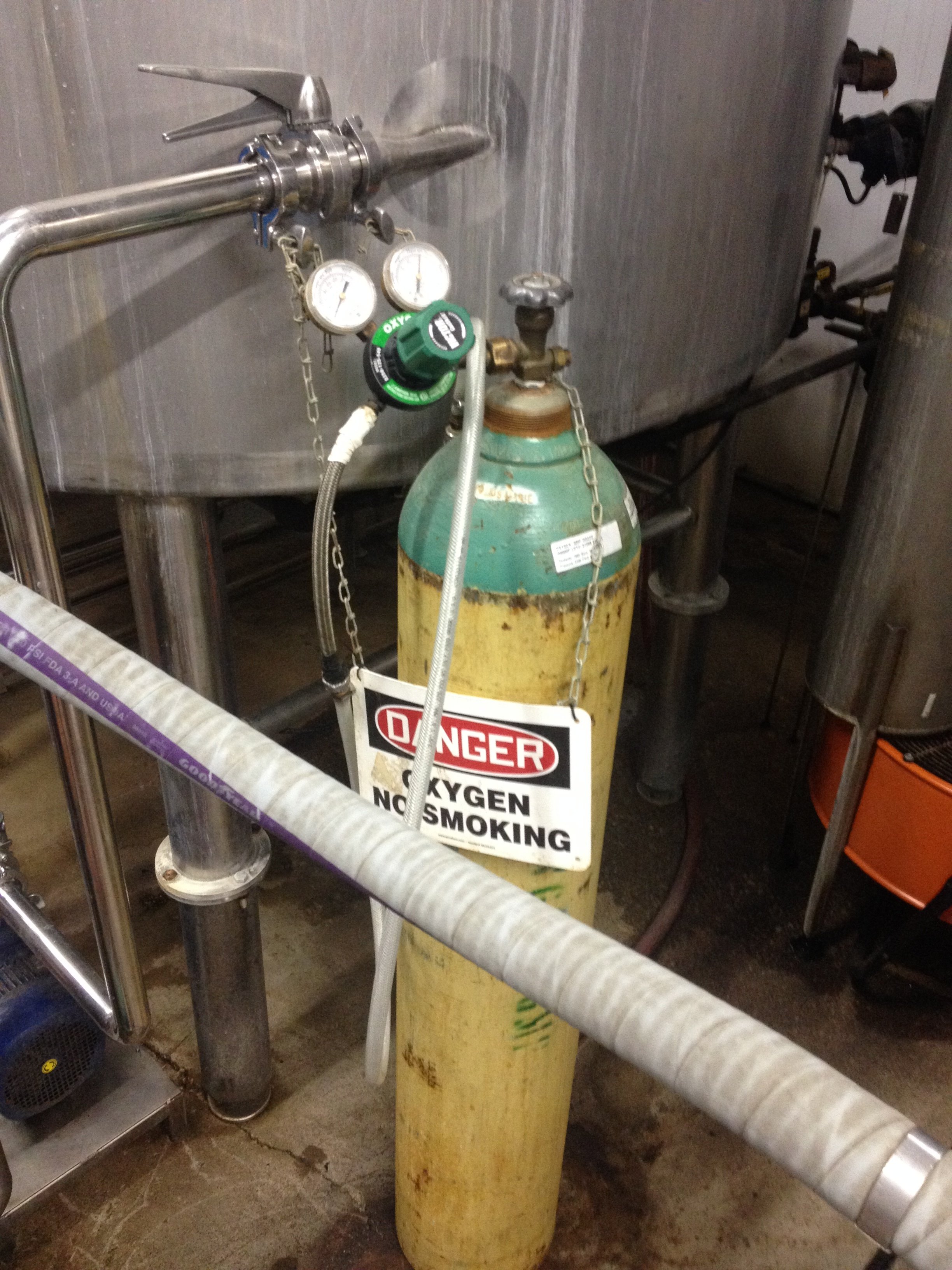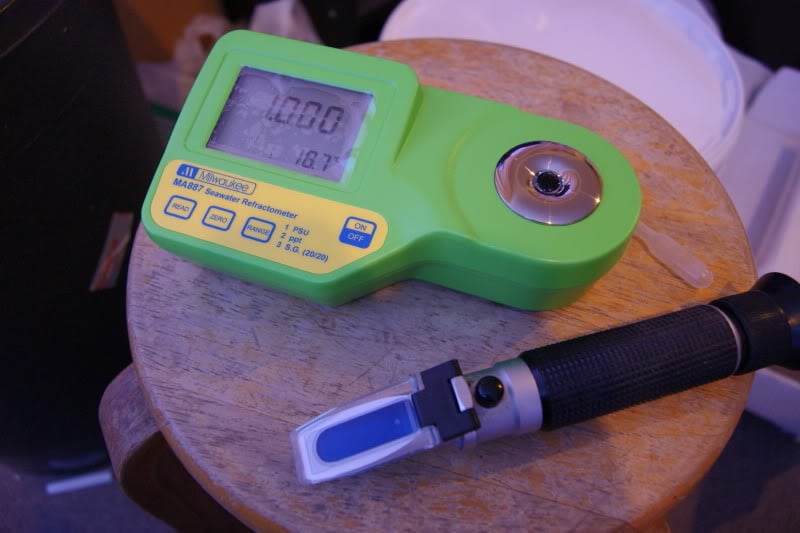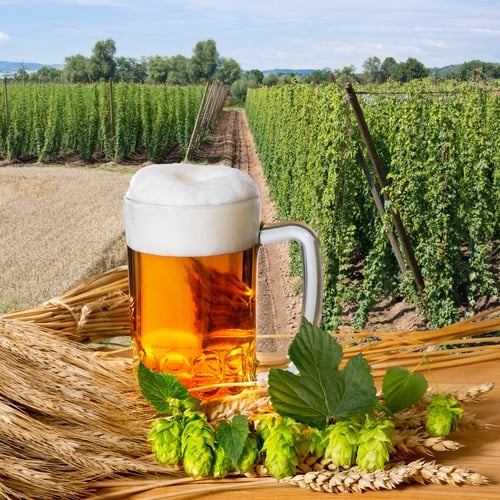Note to readers: Each of these monthly interviews will feature a craft beverage maker who has achieved success on a large scale and is willing to share the hard-won knowledge and real-world experience he or she has garnered along the way. Any growing brewery, cidery, distillery, or winery owner or producer will benefit from insight and advice from industry pros.
This installment features Kevin Ely. The following interview has been edited for length.
You've been brewing professionally, you told me, since about 2000. What would you say is the most important lesson that you've learned over the years as it relates to actually brewing beer?

Kevin Ely: The most important lesson. Well, that's a big question. I would say, goodness, it's going to be a little bit cliché, but really the most important one is good-tasting beer that's of high quality will always win. You'll always do well if you make good beer. It's simple.
How has your role as a head brewer sort of changed from one job to the next maybe because the brewery was a different size or was at a different stage in their lifespan?
KE: I've been head brewer at breweries ranging in size from annual production outputs of about 275 barrels per year to now, this year we're tracking for about 100,000 barrels per year. There's definitely a range in size from that perspective.
On the small side, it's a very intimate relationship with your beer consumer. If there's a customer complaint, it kind of goes up and down the bar and you hear about it, versus being in a larger regional brewery-type setting. [In a larger operation] there's a lot more going on internally as far as maintenance and management . It's not just a few people that are in your neighborhood coming to your brewpub. You need to ideally be doing something that excites a lot of people.
At what stage of the game did brewing become more about the business as opposed to about the liquid for you? What size company would you say would that be?
KE: Fortunately, I'd almost say it's been now. Beer's always been the focus. For me, the interest has always been about learning and expanding. It's been learning more about the industry and expanding my personal knowledge base. That's what engages me and excites me about being in the industry, but there are lots of aspects that through my career I've never paid as much heed to or attention to, and that would be definitely more on just the true kind of business side of things, and we're a business that has lots of responsibilities socially. It's more than just the brewing of beer and the science and practice of it and how it basically ties into the larger scene of industry, business, and society, I guess.
I feel like there's a point where everyone, at least self-identifies that, “hey, I finally realized that I need to get someone who is more business focused involved to help me move the business forward,” but no one actually ever really puts their finger on exactly when that happened and how they came to that realization.
KE: I don't know if you'd be tied into barrels or dollars or some other metric. Maybe it's tied in also to personal capacity of the leadership or the ownership. I don't know. Maybe it's an evolution of the industry. I'm not sure. We're a group of people that are motivated by and impassioned about craft beer. We get pretty excited about it. It's easy to lose sight of the fact that if you're not doing everything you can to be socially and fiscally responsible, you could lose control. That's an important aspect besides just the beer, I would say.
Because if you're not, then you won't have any more beer.
KE: Yeah, exactly.
When we spoke a couple of weeks ago, you told me that brewing is somewhat of a balance. It's not just the technique of brewing, but it's also sourcing materials, operations, etc. How do you balance all those things, the raw material sourcing and buying, with the brewing, and then also the selling operation?
KE: I guess you balance sort of based on your need and urgency. I think over time you evolve into a system that works and is manageable. You can be deciding you want to make all kinds of new and fun and creative beers, but if you can't get the ingredients, or if you're constantly running out, it's hard to stay on top of it, and you learn from that.
You try to definitely get good people that you can work with in the environment where you support each other and help. I don't know that there's a single right way or necessarily a wrong way to do it, but I think in general it comes down to doing it in a respectful way, doing it sustainably, and doing it in a way that everyone agrees upon.
Do you have any insight as to perhaps a best practice for inventory management of a smaller company when you might just be keeping track of things on whiteboards of clipboards?
KE: For me back then, on that scale, it's like you're doing one or two batches of beer a week. It's definitely a little slower pace. The tools I was using were Excel spreadsheets and printouts that I would do my daily and weekly counts of things.
A big thing for me was we actually distributed ... It seemed to be a large number of kegs at the time, every week we were putting out 30–50 half barrels and just trying to keep track of where they're going. We just did a simple numbering system. We only owned maybe 300 kegs, each keg cost me a hundred bucks. When you're a small operation, that's a big investment. So, to me, it was worth the time to try to follow these kegs. It's very time intensive, but I felt that it was worth the several hours of effort that we put in each quarter.
There's definitely some new technologies that ... I mean, if it be RFID tracking taggings, or if it's going to be something more along the lines of barcode scanning, I think these are things that are good practice and important.
It sounds like things are evolving at Uinta over the past seven years or so. How has the equipment in the brewery changed, would you say?
KE: Definitely a trend toward, I won't say just more automated equipment, but equipment that has more automation. For us, when we're brewing now, it takes us pretty similar amounts of effort and physical involvement to produce a 120-barrel batch of beer as it did on our older 40-barrel system.
I think there's a lot that technology has to offer to even smaller breweries that can really make people's lives less stressful and easier and really also improve quality and consistency, and I think overall general happiness of all the employees and everyone involved with the process of making the beer.
When we were first bottling here for many years, we hand-loaded all the bottles on the bottling line and hand-packed all the bottles coming off the bottling line.
That's what we do.
KE: For us, it definitely would've been worthwhile to have installed a drop packer, earlier than later, because your return on investment with labor on that would've been a matter of months. It's one of those things, I think it's easy to get stuck in ruts, like this is how we've done things, this is how we're doing it, and we'll just keep rolling along. I think if you continually self-evaluate yourself and your brewery and your situation and your process with the hopes of improving the product, the well-being of the process and everyone involved in it, I think you can get a lot of added benefits, benefits on top of benefits, really.
That makes sense. How do you plan for your growth as it relates to equipment and purchases?
KE: That's a good one. It's the ultimate guessing game that everyone's going to play, and I think that's a hard one to answer, but I don't know. I just think that it's an interesting process to manage the growth. I think that's a big challenge.
For instance do I buy a small tank or two that will hold me over, knowing the cost difference between a small tank and a larger tank isn't that great, or do I spend the extra $5,000 and get the larger tank?
KE: I think whenever you're doing the planning on any scale, that you should always do it in a scalable manner instead of just haphazardly, and that's exactly a good way to look at it.
The last time we talked, you told me that you try to find vendors who match up with your philosophy of making beer.
KE: One example is energy. Early on, we decided we'd purchase electricity from more sustainable sources. In this case, it's wind powered. On the equipment side, (we purchased) one of the most efficient boiling /steam-generating systems on the market. It's been fantastic. We have tremendous efficiency, and that extra investment, I think, was worth it in our case.
Even going down to raw materials. We produce a lot of organic beers. There's definitely a lot to be said about organic practices. I don't want to say it's the only way to make good beer, but it's definitely another good way to do it.
It runs the gambit from everything from raw materials and resources all the way through your equipment and your operations all the way to services that are being provided to your company on the backside, but there always has to be good value there, as well.
It's good to have that perspective on it, too. It's not just about equipment, it's about the environmental impact.
KE: I think it even comes to some of these services that you contract with, kind of supporting people and companies that you think are being responsible and doing a good job in contributing back to maybe your local community, your local economy, and society in a generally good manner.
I love that. What would you say was the single most important piece of equipment that you've ever used, or maybe most impactful on the business?
KE: I would say the things that made people's jobs significantly easier. If you make everyone's jobs in life easier, they're able to spend more effort contributing back in a positive way to your company, to your brewery.
One example is our centrifuge. We got more involved in making a lot of, in my opinion, great hoppy beers, and processing these beers became next to impossible for us using filters. We were getting to the point where we could barely even filter some of our beers some of the times.
It doesn't matter how hard you try or what you're doing, no matter what you cuss at the filter, it just doesn't work. We got this centrifuge. We put it in, and it allowed us to make everyone's lives easier. It more efficiently produced and used a lot less resources.
Really look at reliable equipment that is supported by good people that are intelligent and willing to help you, because it's extremely frustrating when something's not working properly and you just feel like there's no one out there that can help you make it work. That's tough.
Let's say a new brewery has $100,000 to spend. What would you advise that they invest in first?
KE: It's kind of simple and old school, but I would say milling and malt-handling equipment. You probably could stand to gain a lot of efficiencies and, over time, a lot of money if you install, say, a nice four-roller mill and some grain-handling equipment that makes it easy for the operators and the brewers to handle the grain. You should have the combined benefit of making people's jobs more enjoyable, safer, and easier, as well as gaining efficiency.
After that, I would maybe even go on to say instead of equipment, investing in a good solid person that can help you make your brewery safe and reliable. I think that's something that can help a lot over time, if you're really trying to put efforts into strategizing ways to improve the work experience and the safety environment of everyone in the brewery.
What would you say a new brewery should focus on if you were taking one year at a time, in their first year to do this, in your second year focus on this, and then in your third year focus on that?
KE: I think the first year absolutely focus on making great-tasting, good, high-quality beer. If you don't get it at the beginning, it doesn't matter. You might be able to bounce around for a while, but that's the thing that has to be the fundamental thing.
The second year, I would probably say it's focusing on ways to expand the sale, the distribution, of your product. Really let people know about it, try to make some relationships with some local distributors that make sense for what you do. I think at that point everyone's going to be very hungry to continue to grow the business, because the second year's not always necessarily the most profitable year for a brewery.
The third year, I would really, like I said, put an effort into being efficient and maybe doing some self-audits of your process and your brewery, just make sure that you're doing everything you can to be responsible and efficient. Not huge investments, but I think things to make the process more consistent and enjoyable and minimize the risk of ruining your beer.
What would you say is the best piece of brewing advice you've ever received from another brewer?
KE: I'm thinking back to my original mentor, but there's no shortcuts. You've got to be clean. It's been said that we're glorified janitors, and that may or may not be true, but we do a lot of cleaning, and you've got to keep things clean.
What tip can you give to home-brewers who are starting breweries of their own that they should keep in mind as they grow into actual real-life businesses?
KE: That's an interesting question. There are a couple of things. There's simple overarching things I've mentioned before of really make sure that you're doing everything you can to maintain high quality.
I would really try to come up with beers that you could produce fairly consistently and reliably given your resources. Your customers aren't going to be very happy if they're expecting your IPA to taste one way and then two weeks later it tastes completely different. Definitely try to maintain the quality, because it's easy to forget to cross all your t's and dot all your i's. It's easy to overlook some stuff. It's easy to get overwhelmed and forget. Maybe also get some sleep.
This publication is The Equipped Brewer, what does being equipped mean to you?
KE: I would say part of it is being aware. Like I said, there's a lot to our business and our industry that's not just the making of the beer. It's your impact on your environment and your resources and the people you work with and the people in your community.
There's a lot of things that if you just take a moment and think about them and look at it, I would say in the larger scale of things, just understanding process flow for as much as you can possibly understand in your facility.
Let's say you were a head brewer at a brewery that's been in business for two years and you are planning an expansion and need to meet the demand for a new tasting room. What are the top three things that you need to consider for this expansion?
KE: I think in construction projects like that, it's very important to be detail-oriented. I'd say kind of do your due diligence to understand the project and take the time to develop a budget for it, because if you don't have some structure for that, it can really get out of hand quickly, and that's always frustrating.
Obviously, it's easy to get distracted, but you can never use a project like that to be an excuse to neglect the safety environment and the quality environment of your brewery.
The third, I guess, would be try to have fun and be creative.
Thank you so much for your time.




.png?width=2254&height=703&name=longitude_logo_final_transparent%20(1).png)
Share This Post